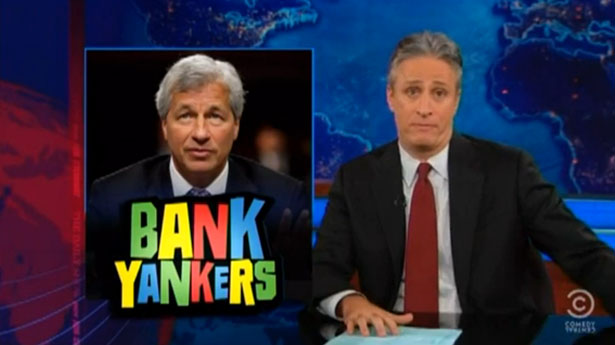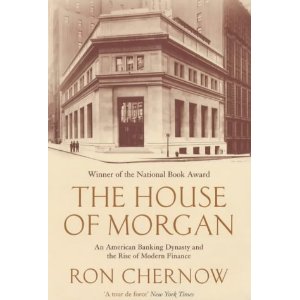NOTE: A version of this post appeared earlier in the San Antonio Express News
Dear Mike,
I wanted to report on my meeting with JPMorgan today. They were very nice, very polished. They handle private accounts and were confident that we could easily transfer my money over to them. They told me that they have analysts all over the world working on this, but they are personally watching the money to insure we get the best deals.
Then I started asking questions and found out a key point: All JPMorgan accounts are “discretionary accounts” (actively managed) and they explained why that was really important and helpful.
So my question is this: What is a discretionary investment account? What are the other alternatives? And what would you recommend a novice investor use? I think I remember my old banker advising me to stay away from discretionary account management, but I am not sure.
Thanks,
Sophie in Boulder, Colorado
————-
Dear Sophie,
“Discretionary” means someone else — not you, someone at the bank — makes decisions about your money. That works for people who totally trust their banker, I guess.
Personally, I would never do that, but probably not for the reasons you would think. Let me define a few terms to explain my thoughts.
As so often happens with money management, the way you pay fees determines everything.
A discretionary “brokerage” relationship is probably what your old banker advised you against. That kind of relationship is one in which the firm and your main advisor make money only when you buy or sell a product, basically from brokerage commissions. This has the pernicious effect of encouraging your broker — because they have discretion or control over your account — to trade more often than might be prudent. That’s how a discretionary brokerage account works, and that’s something to avoid.
A discretionary “fiduciary” account, by contrast, is one in which the bank and your financial advisor get paid through regular quarterly or annual fees, usually as a percentage of your money that they manage. This has at least three advantages:
- The broker does not make more money by trading frequently, which can be deathly to a person’s net worth;
- If you as the client have more money, the advisor gets paid more, so in general the broker’s incentives line up a bit better with your best financial interests; and
- A discretionary fiduciary relationship typically carries with it an expectation that the broker must act in the client’s best interest, and a regulatory regime exists to try to punish bad actors who fail to act as prudent fiduciaries.
Now, there’s no guarantee that the broker with discretion will always do that.
I say that not particularly because I think JPMorgan Chase will rip you off. While that’s possible, I would consider it highly unlikely to happen with JPMorgan Chase — or any other giant brokerage firm. I’m not naïve about the possibility of bad apples at JP Morgan Chase, but I trust in the power of lawyers going after big Wall Street firms. JPMorgan Chase and other huge brokerages are big fat targets in a highly litigious world. Many class-action or investor-protection lawyers would like nothing better than to take you on as a client if you got treated badly by a big brokerage company. That’s a massive payday all around for you and your attorney.
So I’m not primarily worried about fraud per se with your discretionary fiduciary account.
What I am more worried about with a discretionary account is the likelihood that JPMorgan Chase will provide higher-cost solutions than you really need.
I worked on Wall Street, and we always got paid better for putting clients into higher-cost, rather than lower-cost, solutions. Since that’s how we got paid, that’s where the conversations tended to turn. It’s really hard to avoid. When you give your broker discretionary power, mostly you run that risk. Since you are a novice investor, this is a particularly important risk to think about.
As for whether a discretionary account is standard at JPMorgan, as your prospective brokers claimed: It seems impossible to me that “everyone” has that kind of account. Those two brokers in Boulder, Colorado, may have every one of their clients with that deal, but I have no doubt that JPMorgan allows some clients to control their own money.
How do I know that? Here’s how I know. Many, many, many rich people want to control their own money, and JPMorgan Chase wants to make rich people happy. Therefore, JPMorgan Chase must open non-discretionary accounts.
A buddy of mine in San Antonio who works for a competitor of JPMorgan explained to me that he and his colleagues often prefer to set up clients with a discretionary fiduciary account. But the choice ultimately rests with the client.
Now, those JPMorgan financial advisors — or any other brokerage firm — may not want your account if they can’t have discretion over it, which is their own choice. But the JPMorgan investment advisors’ claim that “everybody” has that type of account is really a description of their own particular business model of those investment advisors within their office, rather than a universal rule of JPMorgan.
My buddy the investment advisor and I respectfully disagree somewhat on the issue of whether your discretionary fiduciary account will lead to higher cost solutions. He argues that because he makes more money when his clients make more money, he has both a fiduciary duty as well as a financial incentive to make his clients more money. For that reason, he argues, he will certainly choose a lower-cost investment product if that’s better for his client, or he will consider other options if that’s better for his client. Since he has set up his financial advisor practice so that he cannot benefit directly from higher-cost products, he feels confident he will protect clients from high-cost products that don’t serve them best.
I remain skeptical, and we’ve talked about this difference, because my experience tells me that investment advisors have a wide variety of incentives, and some of them go beyond the purely fiduciary. What if financial advisors get treated to a delightful luncheon at the best restaurant in town by the fund manager and their analysts? What about access, and information? What about a sense of belonging? Or brand loyalty — that goes beyond the precise “best practice” for the client?
My buddy says good investment advisors set themselves up to be client-oriented and safe from these competing incentives. I say that even with the best of intentions we’re all human and we have mixed motives. The more discretion you give your advisor, the less you can control those motives.
As for JPMorgan Chase’s claim that they are “watching your money to make sure you get the best deal,” I guess this is the kind of thing one says these days to justify higher fees.
The key to Wall Street — as always — is to convince clients that the broker or bank provides some extraordinary service to justify extraordinary costs, when in reality the service is typically very ordinary.
I know you are concerned about what to do next.
I’ve thrown a bunch of skeptical ideas at you that do not solve the problem for you.
The long run solution is to invest enough time in understanding your investments to the point where you will no longer see giving a bank or brokerage discretion as a good thing. The short run solution is to keep shopping around for a bank or brokerage that wants you to gain that understanding, rather than to make decisions for you.
Please see related post: Do You Need An Investment Advisor? If So, What For?
Please see related book review: Simple Wealth, Inevitable Wealth by Nick Murray
Post read (4220) times.





